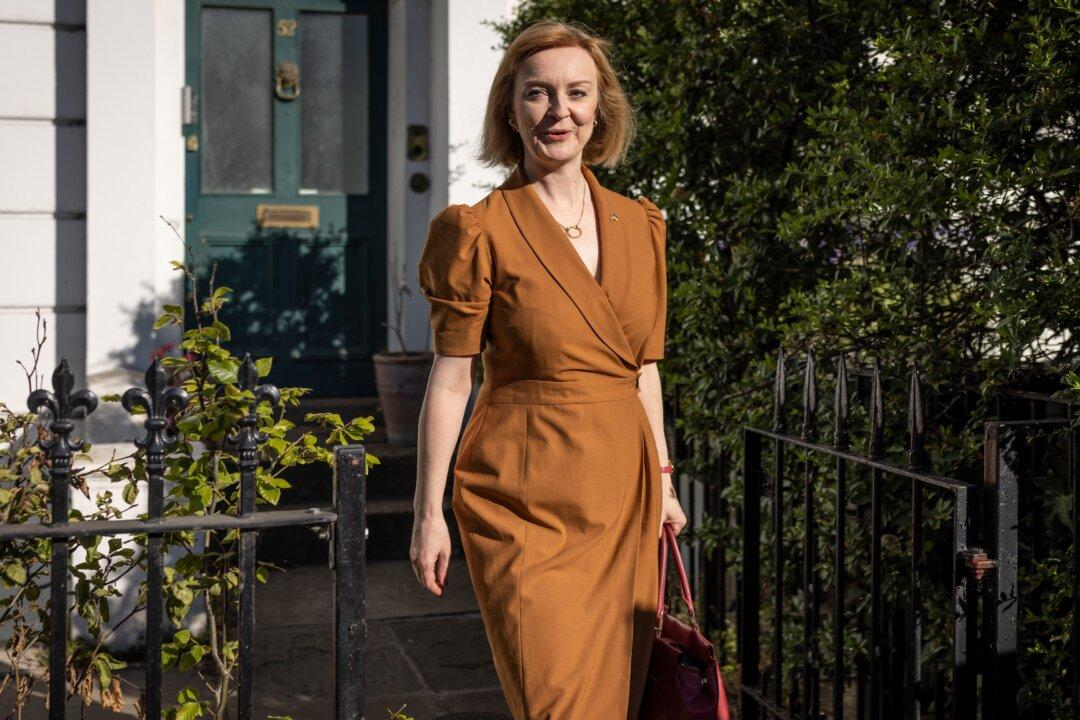UK Foreign Secretary Liz Truss opened her campaign to become the country’s next prime minister on July 11, bringing the total number of candidates to 11.
Truss, who has held ministerial jobs in a number of government departments, including trade, justice, and the treasury, said she would slash taxes and maintain a tough line against Russian President Vladimir Putin.





